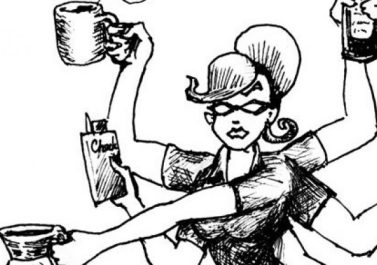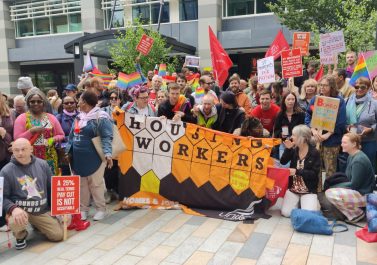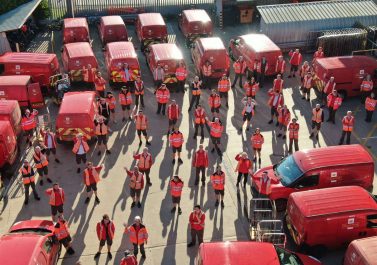Two weeks ago, 4000 council workers were fired and rehired on worse conditions. Workers have shown that they will not back down and accept the contracts, which have already earned the nickname ‘Tower Robbery’. Key workers voted in favour of continued strike action in August and September at a branch meeting on Friday.
After UNISON suspended the planned action in March (due to Covid), the chief executive refused to grant an extension to the trade dispute. This meant that action had to be taken within six months of the original ballot. Therefore, legally workers cannot strike after the 20th August. The notice period that the union has to give management, under the trade union laws, is two weeks. In addition, UNISON’s national office requires a further week of notice to agree what action is to be taken. So the earliest any action can be recommenced is the 10th August (assuming notice was served on Monday 21st July). This would then have to stop by the 20th or another ballot run. This presents a challenge as the union only scraped past the 50% threshold originally, and that was at a time when people actually came into the office and could be canvassed easily. Would a 50% threshold be easy to achieve in this new world that we live in?
Either way, the result from the vote at Friday’s branch meeting not only means workers across the borough will be back at the pickets within weeks, it also mandates UNISON to ballot members on extending the dispute with Tower Hamlets Council beyond its current deadline of August 20th. Meanwhile, Mayor John Biggs still refuses to negotiate over his ‘Tower Rewards’ contract scheme.
Summary of the strike action
The pickets have attracted fairly large numbers: around 40 per day at Albert Jacob House, 30 per day Whitechapel, 20 at Mulberry Place (townhall), and fluctuating numbers at the transport depot on Silvocea Way. The virtual rallies have been massive, 300 plus each time. The branch meeting for union members peaked at around 300 on the Friday. The strikes have got some media attention too, including a segment on BBC London, in which Will Tuckley talked about the need for these contracts in order to pay social workers more money (this hasn’t gone down well amongst social workers). Despite this, it’s very difficult to say how much it has affected services. Housing was undoubtedly down to a bare minimum, social services was slow but still operating. Beyond that no one seems to know. Is this a problem? How can we review and think about the impact of the strike?
Silvocea Way
On several of the strike days, refuse and transport workers have refused to cross picket lines in solidarity with the strike, and apparently have asked to be officially included in the action. The pickets at Silvocea Way have arguably been some of the most effective. Rubbish piling up on the street is very hard to ignore, even for a sun-tanned chief executive. The workers at this picket are Unite members but contact was made with UNISON several days before the start of the strike to say that if a picket was thrown up outside the depot, the workers would not cross. One picketer said that on the first day: “About 10 of us showed up from 5am, and sure enough for hours the drivers smoked, drank tea, laughed at their managers and encouraged us to hold firm.” It was very different the following Monday, with several arrests and aggression from local police. The speed with which the police arrived and cleared the picket gave the impression that the chief executive or mayor may have given the borough commander a friendly call over the weekend. The day after, the picket didn’t go ahead. However, on Wednesday last week, there was a 20 strong picket, and the drivers didn’t move for nearly three hours. There was a brief interruption by police, before work stopped again after the police had left. At one point a worker was told by his manager to inch his truck towards the picket to see if they would move. After some back and forth, he threw his keys at the manager’s feet and left his cab. Sadly, it turned out that the next day that same driver passed away from a heart attack. His co-workers are apparently drawing a link between the two events and anger is simmering. If there is further strike action in August, is Silvocea Way somewhere that should be targeted further? How can it be maintained consistently and without risking arrests? Should there be other secondary pickets to increase disruption and the effectiveness of the strike? Which locations would be suitable for this?
Other unions, other workers
Unite recently balloted their members for strike action with the result yet to be announced. This seems to be an exciting development, after they narrowly missed out on the threshold six months ago. GMB, on the other hand, aren’t doing this, and despicably advised members to go to work during the strike. There are also whisperings of teachers with the NEU joining strike action. The only part of the contract they are affected by is the redundancy payments. Originally they were going to strike too, but then, due to Covid, suspended their action. Maybe this would change in September, but they would need to re-ballot too. If this happens, all Tower Hamlets community schools (which is a lot of them) would also go on strike. How can workers who aren’t in UNISON be reached out to and encouraged to join future action?
Community support
The London Renters Union has shown their support, sending members to the pickets in solidarity. If this generalising of the struggle in Tower Hamlets continues, the power of the strikers will become even greater. There has been some chatter in the mutual aid groups of Tower Hamlets, but it’s not clear how much of this translated to supportive action. Anyone who went to the Albert Jacobs House picket would have experienced the difficulty in hearing yourself think, the beeping was constant. Construction workers, buses, Argos delivery vans, black cabs, mini cabs, random passers-by. Members of the public walked through the picket clapping their hands in their air. Cyclists put up fists as they cycled past. Could support from the wider community be utilised more effectively? What is the best way for that support to be delivered?
Political involvement
You can’t really seem to have a discussion about this strike without engaging in some conversation about the Labour Party. Tower Hamlets Labour Party seems to be at war with each other over this. There are ‘good’ MPs and councillors, and ‘bad’ ones, with of course, mayor John Biggs, the worst amongst them. Lots of picketers are members and they want to talk about this, but what, if anything, they want to do about this isn’t clear. As well as the Labour link, there are a number of socialist groups who are present on the picket lines. Chief amongst them are the Socialist Worker’s Party (SWP), who hold at least a few branch officer positions, and the newspaper sellers are easy to spot on the picket lines. Does the presence and influence of political groups hold back the action in any way? Is it something that people are aware of? And do serious conversations need to be had about whether UNISON branch money going to the Labour Party is something that should continue?
Struggle beyond the strike
A group of social workers have formed a whats app group to discuss matters relating to the strike but also other workplace issue. This has become a place where workers can coordinate themselves to attend pickets, make placards and so on. However, Children’s Services appointed a new director recently, who made the wise decision of including some disparaging comments about the strike in his first email to all staff. An idea that started in that whats app group, has led to over 100 of his staff signing a letter calling out his comments and recording their anger. It will be interesting to see how he responds. But could other workers in the council be organising in this way? Or perhaps they already are? Does the sending of letters and discussing workplace issues separate to UNISON structures represent something that should be happening more?
The bigger picture
As well as being hugely significant to the prospects of 4,000 Tower Hamlets social workers, librarians, school staff and care workers, this action has implications for workers everywhere in the UK, in all sectors. This is the first major strike action since the outbreak of coronavirus, and may set the tone for everything which follows. The economic crisis we are entering is already leading to a wave of redundancies and wage cuts across public and private sector workplaces. If John Biggs is able to get away with his ‘Tower Rewards’, employers across the country will be emboldened and this wave will continue, sweeping thousands of key workers into unemployment. If the strikers win they will create a blueprint for other workers and unions to follow. Most importantly, they will send the message that redundancies and wage cuts are not an inevitable outcome of coronavirus that workers have to lie down and accept.



